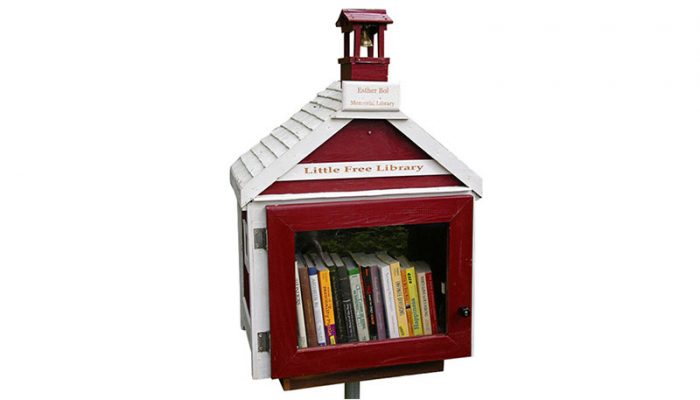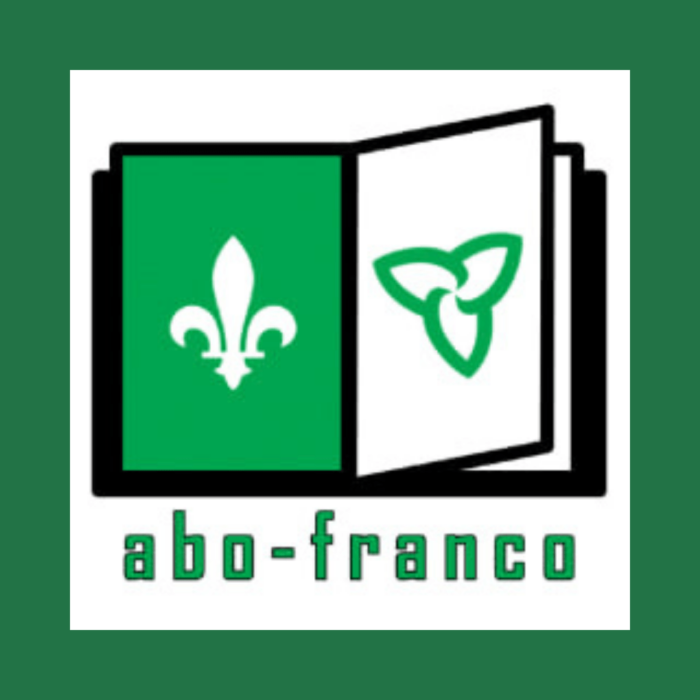Generative AI have sparked debates in higher education, especially after ChatGPT’s release in November 2022. However, an often-overlooked aspect is the emotional weight LIS professionals have noticed about this emergent technology.

The Trouble with Twee
Twee: excessively or affectedly quaint, pretty, or sentimental (Oxford, 2015)
For the past year, I’ve been giving a lot of thought to neighbourhood book exchanges, in particular those branded with the Little Free Library (LFL®) trademark. When I announced that I would be doing this research, I received many links to articles about them each article more like the last.
“Person/group installs book exchange. Usually a brief history of the LFL® organization. Neighbourhood agrees it’s lovely. A blurb about building community and encouraging literacy.”
And that’s about it. The narrative is maddeningly homogeneous (some notable exceptions; see the Reading List below) and almost unfailingly obsequious – a sure sign that a critical eye is needed. Here’s where I come in.
I always like to begin with the assurance that I have no issue with neighbours sharing books with each other. I recognize that I am positioning myself to be viewed as a librarian toting a bag of sour grapes when I openly critique the movement. But hey, I’m an academic librarian, it’s sort of my job to think critically about our industry. I’m ready to accept the ramifications of being the Librarian Who Hates Little Free Libraries®.
Let’s roll.
To begin, we need to ask two questions – what are neighbourhood book exchanges not doing, and what are the potential unintended consequences of their existence?
The first question is one that is best imposed specifically upon the LFL® movement. The most glaring answer is simply that they are not libraries. While we (libraries) are not able to dictate the use of the term, it is nevertheless a bit cringe worthy to see the word used alongside the ® symbol and the word “free” slapped on a box of second hand books. Their mission, goals and key strategies speak to promoting literacy and a love of reading through building LFL®s worldwide. That’s it. If you build it, they will come. Books of varying quality and quantity will be there. Happy reading, folks! World made better – ✓
In terms of unbranded book exchanges, all are not created equal. Chances are, you’ve seen dozens of “take a book/leave a book” installations in your own lifetime – the concept is certainly not new. In this world of Pinterest and Instagram, however, the twee factor gets attention. In a sea of miniature houses and dusty shelves in hostels, some stand apart from the rest. There are those such as the Public Collection by the Indianapolis Public Library which bills itself as a public art and literacy project. These book exchanges are conceived, executed and managed by the library, this project stands out as an extension of the public library.
As a steward of my own book exchange (in the interest of getting up close and personal with my research project, I decided to take a phenomenological approach and purchased an LFL® for my front yard), I can attest to the need to maintain the collection. While one may not have to be a card-carrying librarian to do this work, it most certainly requires a not-insignificant amount of effort and resources to ensure it is well stocked, tidy and weeded occasionally (i.e. culling the mouldy bodice-rippers and old textbooks). Sometimes, one person’s trash is really just another person’s trash. As any library worker can attest, not all books are treasures.
Much of the chatter among stewards and the content of many articles about running a neighbourhood book exchange focuses on how to make the exchange attractive, popular and well stocked. Reading through this dialogue with a critical eye leads one to a relatively obvious conclusion – something that is considered to be so important and takes this much work should be handled by … oh, I don’t know … an actual library?
Investing in LFL® v. a public library is an investment in a trendy whim rather than an investment in long established institution that is beholden to funders to deliver effective programming. If one truly cares about equality and accessible content for all in support of literacy, one could concede that while this movement may not be hurting, it isn’t exactly advancing it in a measurable way.
What if I told you that, in fact, these well intentioned exchanges could conceivably be hurting public libraries?
It is helpful to turn toward what is known as civic crowdfunding here to explore the second question – “what are the potential unintended consequences of their existence?” Absolving government of their responsibility to fund societal needs by volunteering to do it yourself is not A Good Thing. All one needs to do is look to Barnet in England to see the very real consequences of what happens when government responsibility is shifted to the public.
Thanks to a local council member taking inspiration from the discount airline EasyJet (not a joke – the initiative has been dubbed EasyCouncil), the One Barnet initiative means that local government offers no-frill basic services and a shift of 790 full time jobs moved to the private sector to run “extra” services (such as planning and environmental services). Other services have been posted to the website Pledgebank where citizens can volunteer to clear snow and ice from streets or even offer a computer class. What this has meant for libraries is a proposed 46% staff cut – libraries remain open, but run by volunteers, or are simply left unstaffed. This is actually happening. Ergo, when an ever-growing organization that appears to be very well organized and resourced, and succeeds through the labour of good-hearted volunteers suggest that they can end “book-deserts” and support literacy in their communities, cash-strapped governments are likely to take a second look. Hence … my concern.
An analysis of urban public library revenue from 2010-2013 (CULC KPIs) revealed funding is either decreasing or holding steady. The vast majority of revenue comes from municipal sources. According to the 2016 Canadian Infrastructure Report Card, one third of our infrastructure is in fair, poor or very poor condition. Over 60% of the country’s total infrastructure is owned and maintained by municipal governments. Couple those facts with Canada’s uncertain economic forecast, and it’s not a stretch to imagine many local governments looking to drastic measures as they struggle to keep afloat in the coming years.
Strong public libraries help build strong communities. They provide space for learning, gathering, making, reading, and so much more. From infancy to the golden years, people from all walks of life can use the library for everything from looking for a job, to seeking the services of a social worker or just a quiet place to read a magazine. This place cannot be matched by a box of books. They may not all be as aesthetically pleasing or as media friendly as a neighbourhood book exchange, but their novelty never wears off.
There will always be surplus second hand books to go around, but we cannot take for granted that the funding will always be in place to ensure public libraries grow to meet the ever-increasing demands on them. Let us not be distracted by things that are shiny; let us encourage our neighbours to support the public library. There is clearly a lot of energy, goodwill and passion for literacy out there. The trick is to harness it and strengthen the connection to public libraries. The potential is enormous.
I challenge public libraries to reach out to local neighbourhood book exchanges to see how they can be involved. I challenge stewards of book exchanges to consider how they can best support their own public library. Most of all, I encourage Little Free Libraries®, stewards-to-be and other organizations interested in sponsoring a neighbourhood book exchange to consider how they are addressing the issue they are passionate about.
Do you really just want to share your old books and meet your neighbours? That’s fine – start a book exchange, but please don’t call it a library. Are you a teacher and want to use it as a class project? Fabulous idea, but please ensure advocacy for the public library is part of that learning module. Do you really want to ensure that there is equitable access to reading material and support literacy in your neighbourhood? Maybe your energy is best directed supporting the local public library or grassroots advocacy for universal daycare.
There are many ways to build community – a box of books is one of them, to be sure, but there’s more to the story than appears.
Further reading:
Mattern, S. (2012, May). Marginalia: little libraries in the urban margins. Places.
Webster, T., Gollner, K. & Nathan, L. (2015). Neighbourhood book exchanges: localising information practices. Information Research, 20(1), paper 684.
Jane Schmidt is a librarian at Ryerson University, currently on study leave and collaborating with Jordan Hale, geographer and reference specialist at the University of Toronto’s Map & Data Library on Little Free Libraries®. They are looking at the movement through an investigation of philanthropic motivations, spatial analysis of socioeconomic data, and a critical examination of the library’s place in urban landscapes. You can follow the project here.


